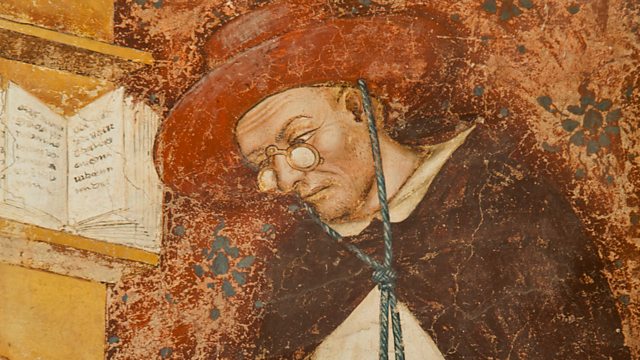A focus on spectacles
Looking at the history of an invention many of us take for granted and exploring how social attitudes to people who wear glasses have changed over time.
If you had to name the innovations that have transformed human civilisation, you might suggest the printing press or the Internet, but the humble pair of spectacles has also revolutionised the way many of us experience the world. It's said that an astonishing three quarters of those in the US use glasses or contact lenses to correct their vision. And the World Health Organisation estimates that more than a billion people in low-and-middle income countries are living with sight problems that could be corrected by the right pair of specs. But how and when were glasses first invented? What impact have they had on societal development? And what are some of the ways we've stigmatised, or even elevated, people who wear them?
Joining Rajan Datar to explore the history of spectacles are Travis Elborough, a historian of popular culture from the UK. He’s recently published a book called Through The Looking Glasses: The Spectacular Life of Spectacles; Stefana Sabin, a German literary scholar and the author of In The Blink of an Eye – A Cultural History of Spectacles – which has just been translated into English; and Professor Kovin Naidoo, Senior Vice President in social impact at the French-based optics company, Essilor. He’s also former CEO of the Brien Holden Vision Institute. He originally trained as an optometrist in his native South Africa.
[Image: Hugh of Saint-Cher, 1351-1352. Found in the Collection of Chiesa di San Nicolò, Treviso; Credit: Fine Art Images/Heritage Images/Getty Images]
Last on
Broadcasts
- Thu 28 Oct 2021 09:06GMT�鶹������ҳ��� World Service
- Thu 28 Oct 2021 23:06GMT�鶹������ҳ��� World Service
- Sun 31 Oct 2021 14:06GMT�鶹������ҳ��� World Service
Featured in...
![]()
Health, medicine and the body—The Forum
The people and discoveries that changed how we deal with our physical health
What is the role of libraries in the digital age?
Podcast
-
![]()
The Forum
The programme that explains the present by exploring the past




